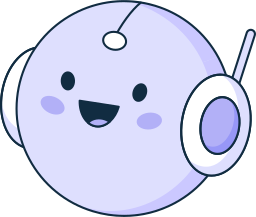Human-animalhybridstobedevelopedinJapanafterbancontroversiallylifted
在备受争议的『de』禁令解除后,日本将开「kai」发人与动物的「de」杂交品种
来源「yuan」:独立报翻译:世界播
Human-animalhybridsaretobedevelopedinembryoforminJapanafterthegovernmentapprovedcontroversialstem-cellresearch.
在政府批准有争议的干细胞研究后,日「ri」本将以胚胎形「xing」式开发「fa」人-动物『wu』杂「za」交。

Humancellswillbegrowninratandmouseembryos,thenbroughttoterminasurrogateanimal,aspartofexperimentssettobecarriedoutattheUniversityofTokyo.
人类细胞将在大鼠「shu」和『he』小『xiao』鼠胚胎中生长,然「ran」后在代孕『yun』动物体内孕育,这『zhe』是「shi」东『dong』京大学计划进行实验的一部分。

Supporterssaythework–ledbyrenownedgeneticistHiromitsuNakauchi–couldbeavitalfirststeptowardseventuallygrowingorgansthatcanthenbetransplantedintopeopleinneed.
支持者说,这项由著名遗传学家『jia』中内启光领导的研究,可能是最终培育出器官(可移植到『dao』有「you」需「xu」要的人体内)的重要第一『yi』步。
ButopponentshaveraisedconcernsthatscientistsareplayingGod.
但反对者担心科学家在扮演上帝的角色。
Theyworrythehumancellscouldstraybeyondthetargetedorgansintootherareasoftheanimal,effectivelycreatingacreaturethatispartanimal,partperson.
他们担心,人类细胞可能会偏离目标「biao」器官之「zhi」外,进入动物的其他部位,从而有效地创造出一种半人半兽的生物。

Forthatreason,suchprolongedexperimentationhasbeeneffectivelybannedorgoneunfinancedacrosstheworldinrecentyears.
因此,近年来,世界各地禁止或『huo』不资「zi」助这种长期试验。
InJapanitself,scientistswereforbiddenfromgoingbeyonda14-daygrowthperiod.ButthoselawswererelaxedinMarchwhenthecountry’seducationandscienceministryissuednewguidelinessayingsuchcreationscouldnowbebroughttoterm.
日本此前禁止含有人类细胞的动物『wu』胚胎生长超『chao』过「guo」14天。但今年3月,这些法律被放宽,当时该国教育和科技部发布了新的指『zhi』导方针,称这些实验现在可以付诸『zhu』实施。
Now,DrNakauchi’sapplicationtoexperimentisthefirsttobeapprovedunderthatnewframework.
当下「xia」中内启光博士的实验申请是第一个『ge』在新框架下『xia』被批准的。
"Wedon'texpecttocreatehumanorgansimmediately,butthisallowsustoadvanceourresearchbasedupontheknow-howwehavegaineduptothispoint,"hetoldtheAsahiShimbunnewspaper.
他在接受『shou』《朝日新闻》采「cai」访时表示:“我们并「bing」不指望能立即制造出人体器『qi』官,但『dan』这让我们能够根据目前掌握的技术推进研究。”
Headdedthatheplannedtoproceedslowly,andwillnotattempttobringanyhybridembryostotermforsomeyears,rathergrowingthehybridmouseembryosto14.5days,whentheanimal’sorgansaremostlyformed,andthehybridratembryosto15.5days.
他补充说,他计划缓慢进行,在未来几年内不会尝试使任何杂交胚胎「tai」足月,而是将杂交小鼠胚胎培育「yu」到14.5天——这个『ge』时候动物的器官已大部分形成,另外杂交大鼠胚胎将『jiang』培『pei』育到15.5天。
Suchcautionwaswelcomedbybioethicistsinthecountry.
该国生物伦理学家支『zhi』持这种谨慎的做法。
“Itisgoodtoproceedwithcaution,”saidTetsuyaIshii,science-policyresearcheratHokkaidoUniversityinSapporo.“Itwillmakeitpossibletohaveadialoguewiththepublic,whichisfeelinganxiousandhasconcerns.”
札幌北海道大学的科学政策研究员石井哲『zhe』也说:“谨慎『shen』行事很好,这『zhe』将促成与心存焦虑和担忧的公众对『dui』话。”
版权声明:本文来自互联网转载或网友投稿,转载请附上原文出处链接及本声明;



工作时间:
客服电话
电子邮件